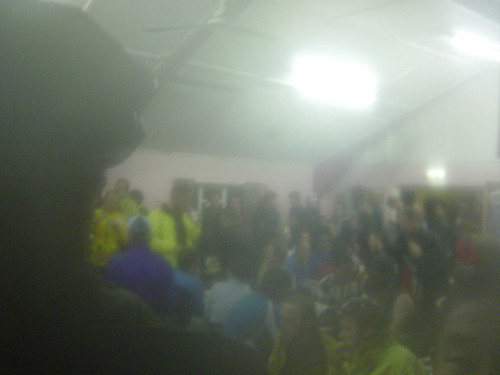

Hi
As you know I did the Dunwich Dynamo at the weekend and thought long and hard which technology to take to record it.
My Canon EOS 500 digital camera got rejected (too heavy)
so I took the following:
- Apple nano (my wifes) with a belkin voice recorder attached for a podcast recorder.
- Sony cybershot 3.2MP digtal camera
- Nokia 6234 phone
so I used the
nano once at the start.
Camera at the start outside a pub (15 miles in) at the mid point (64 odd miles) got three shots in before condensation of the village hall fogged it up.

The phone to ring my wife fifteen miles and an hour from the end . plus 4 or 5 texts along the way .
so why didn't I use it more "The weather it poured down" The camera didn't work well because I didn't take a case and it got cold and was a focus point for condensation when I got it out at the mid point. The nano wasn't robust enough in the wet and I could be bothered .
The phone work but wasn't ideal to use in the dark.
so one device to all those jobs would I have used it more would a ruggedised version of devices made it more useful. I don't know but it does suggest technology wont get used if its not easy and reliable


